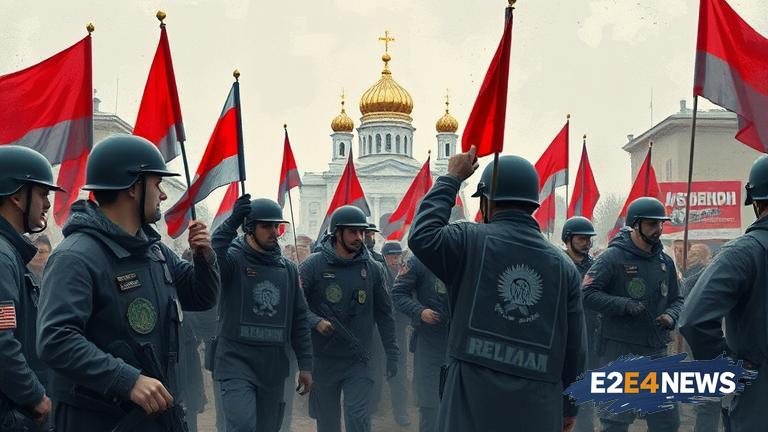In recent weeks, Belarus has witnessed a significant escalation in the government’s crackdown on political dissent. Authorities have launched a series of raids and arrests targeting opposition activists, journalists, and human rights advocates. This surge in repression comes amid growing international concern over the deteriorating human rights situation in the country. The government, led by President Alexander Lukashenko, has consistently denied allegations of human rights abuses, claiming that it is maintaining order and stability. However, critics argue that the actions are part of a broader strategy to silence dissent and consolidate power. Many of those detained have been charged with vague offenses, such as ‘participating in unauthorized gatherings’ or ‘discrediting the state.’ Lawyers and family members of the detained individuals have reported limited access to their clients and loved ones, raising concerns about due process. Independent media outlets have also faced increased pressure, with several websites blocked and journalists detained for covering anti-government protests. The international community has condemned the crackdown, with human rights organizations calling for the immediate release of all political prisoners. The European Union and other Western governments have imposed sanctions on Belarusian officials in response to the ongoing repression. Despite the international pressure, the Belarusian government shows no signs of easing its grip on dissent. The situation has led to a growing sense of fear among civil society activists, many of whom now operate under the constant threat of arrest. The crackdown has also had a chilling effect on free expression, with many Belarusians self-censoring to avoid attracting the attention of authorities. Meanwhile, the opposition movement remains fragmented, with different groups struggling to coordinate their efforts effectively. The ongoing repression has further polarized Belarusian society, deepening the divide between supporters of the government and those advocating for change. As the situation continues to deteriorate, the international community is urging the Belarusian government to respect fundamental human rights and engage in meaningful dialogue with the opposition. However, given the current trajectory, it seems unlikely that the government will shift its approach in the near future. The fate of those detained and the future of political dissent in Belarus remain uncertain.
